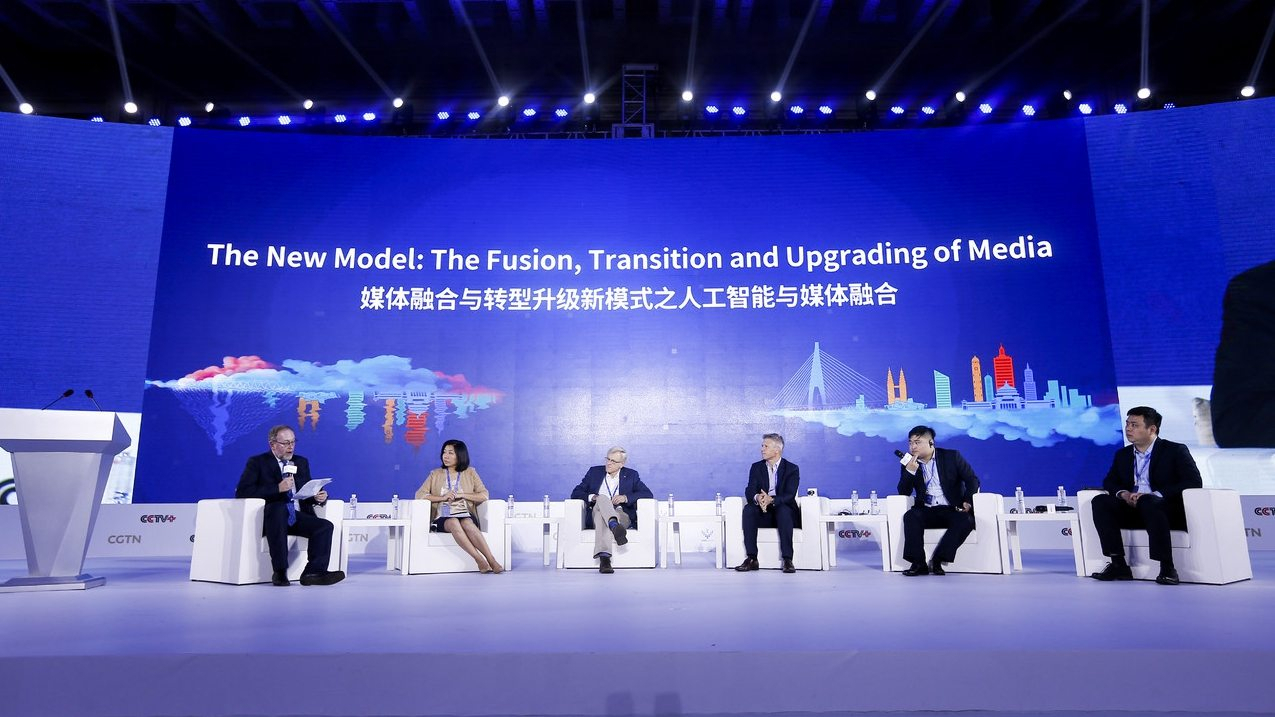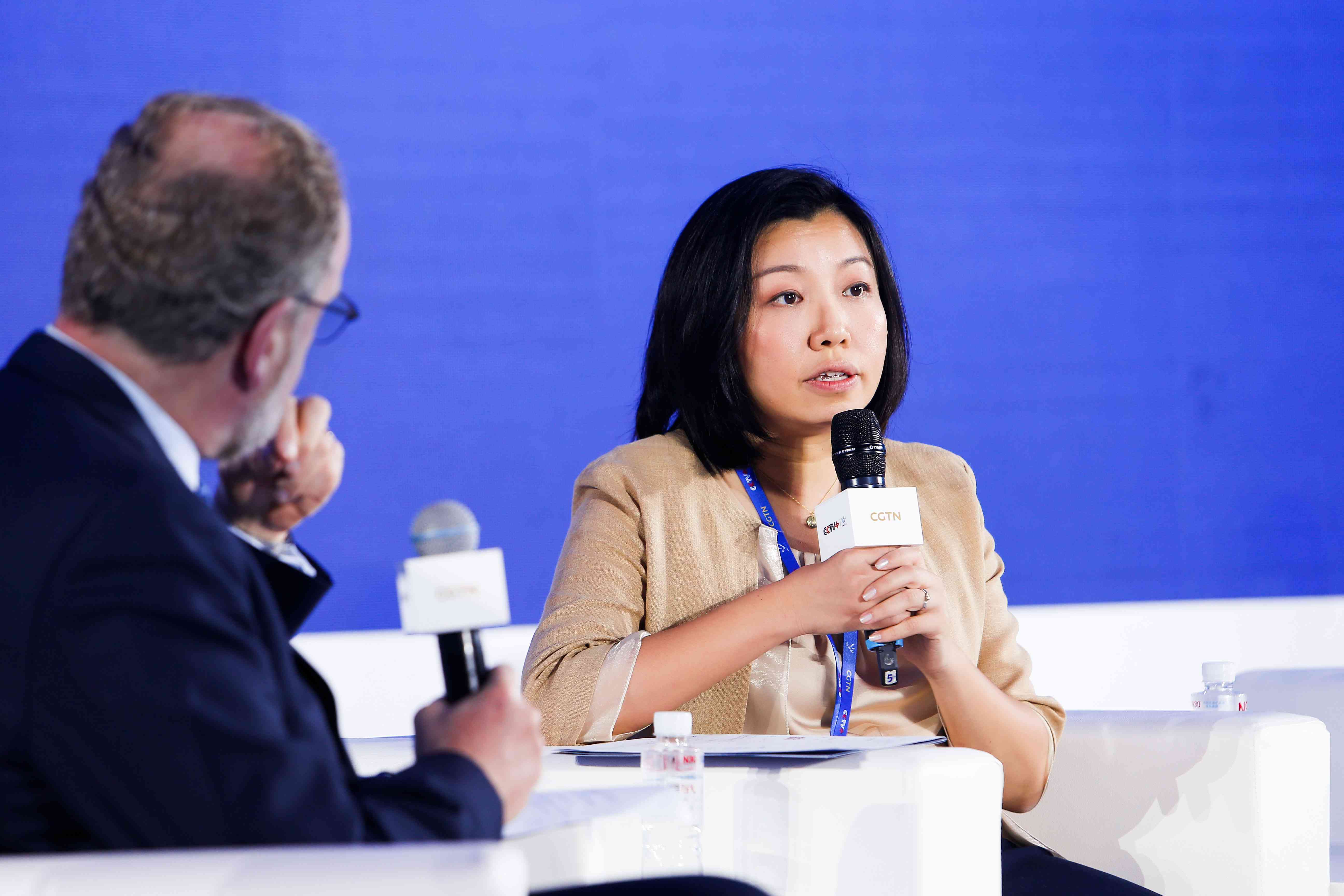
Culture
21:12, 16-Oct-2018
CGTN Global Media Summit 2018 – Fusion, Transition and Upgrading of Media
Updated
20:59, 19-Oct-2018
By Guan Yang
47:38

The 2nd CGTN Global Media Summit and the 8th CCTV+ Global Video Media Forum (VMF2018) opened in southwest China's Chongqing on October 16. The two-day event is hosted by the China Global Television Network (CGTN) and CCTV News Content (CCTV+), and co-hosted by the China Global Television Network Corporation and the Chongqing Hi-Tech Industrial Development Zone Management Committee.
A panel discussion on the integration between traditional media and artificial intelligence, titled "Fusion, Transition and Upgrading of Media" sparked inspiration among participants from various media organizations around the globe.
Digital media is pervasive in our lives and will continue to be for the foreseeable future.
Whether media organizations are looking to enrich the user's experience or sell them goods and services, they need to learn to use all the media available to their target audiences to reach them by using each medium in a manner appropriate to its strengths and so that each medium does operate in a symbiotic way with all the rest.
"Technology is now a part of life, traditional media need to embrace new technologies in the digital age. AI can greatly help in data analysis, and provide guidance in content production. But AI cannot fully replace what journalists are doing," said Mei Yan, deputy director of CGTN Digital.

Mei Yan, deputy director of CGTN Digital. /CGTN Photo
Mei Yan, deputy director of CGTN Digital. /CGTN Photo
Adrian Wells, managing director of ENEX said: "Automated journalism is something you can do a lot more without the involvements of human resources. For instance WeChat here in China is extremely successful, it has the functionalities of news telling, banking, messaging and many more, these are the things that Western companies like Facebook, Google need to learn from."
"Social media has allowed self-proclaimed 'AI influencers' who do nothing more than paraphrase the existing contents repeatedly to cash in with low-quality pieces. The result is dangerous. What do all of you think of that?" asked the host, David Schlesinger, founder of Tripod Advisors.
Yan Peng, industry general manager of Tencent Cloud Computing answered: "Tencent as a high tech firm, we have a lot of social responsibilities on our shoulders. Many technologies we've developed 3-5 years ago are still being kept in laboratory, because we are concerned about the potential risks they may be exposed if some organizations were not using them in good faith or professionally. I think the challenge today for the media companies is to keep the traditional values of news broadcasting while thinking commercially."
John Lee, professor of Digital Media of University of Edinburgh added: "The principles and skills required in journalism never change, I always said to my students that whatever new technologies you were taught today will be outdated in 5-10 years' time. So the thing you should learn more than anything else is the ability to absorb new technologies and make them work for you."

John Lee, professor of Digital Media of the University of Edinburgh. /CGTN Photo
John Lee, professor of Digital Media of the University of Edinburgh. /CGTN Photo
At the end of the session, Mei emphasized that artificial intelligence in news production is a double-edged sword, it can free journalists from those standardized procedures one must do, but on the flip side, certain measures must be applied, and the management can never let their guard down.
With the astronomical growth of digital platforms and shifting consumer preferences in news consumption, the traditional media industry is perhaps losing ground to new media that offers wider reach, faster speed of delivery, and better user experience. Media organizations should continue to adjust their operational strategy accordingly to remain relevant to the mobile-savvy audiences, while focusing on producing quality content.
(Top image: A panel discussion on the transition and upgrading of the media at CGTN 2018 summit. /CGTN Photo)

SITEMAP
Copyright © 2018 CGTN. Beijing ICP prepared NO.16065310-3
Copyright © 2018 CGTN. Beijing ICP prepared NO.16065310-3